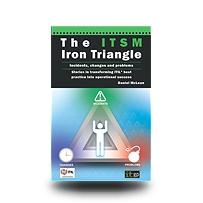
IT Service Management is all about putting the focus on the end user, ensuring they get the service they have asked for and that it is delivered on time and at a price they are willing to pay. But let's look at this from a different angle, and focus on the people behind the service desk. Those involved with implementing IT Service Management best practices in a team environment are often overlooked. Sure, the ITIL Lifecycle Publication Suite will provide you with the theory behind IT service management best practices, but how do you go about implementing these into the real world, facing real people? How do you get your work colleagues and managers on board with an idea/project? How do you communicate your goals in a way that will enthuse others? How do you build your own credibility whilst doing this?
A recent report from SDI on 'UK Service Desk Benchmarking Report' found that there is great optimism in the IT service management industry. A massive 84% of respondents (mainly service desk managers) said that they plan to either maintain the levels of their current headcounts or increase them over the next 12 months. This is brilliant news considering the state of the economy and that adjacent industries are flailing. However, with headcounts maintained or likely to increase, the survey reveals that the number of businesses carrying out regular staff morale surveys has fallen since 2009. Author of the report, Daniel Wood, finds the results discouraging. "Staff morale surveys are incredibly important as they inform us as whether the staff are happy and motivated...It goes without saying that unhappy and unmotivated staff will not provide the best service possible to customers."
Source: Support World Magazine
Another point to add to the mixing pot is that there are still divides between front-end and back-end techies in terms of attitude, approach, behaviour and culture. Jo Johns from Support World Magazine claims that "IT continues by and large to be somewhat unloved and unwanted....and we are frequently seen as blockers of what the business aspires to do via technology". It is therefore important to keep your staff not only motivated, but to ensure they work together to get the results the company wants.
Ask yourself these questions:
- Does everyone pull together in your team to ensure prompt, accurate and effective delivery?
- Do you treat your colleagues fairly?
- Do you all care for the success of your organisation?
Johns continues, "Some common sense, added to positive and constructive attitudes and behaviour, will provide the key to successfully working together"
If you want to enthuse others and build up morale and motivation for your team so that you can meet the objectives of your company, then read The ITSM Iron Triangle: Incidents, Changes and Problems. This book (published 5 Jan 2012) contains information on how to accomplish goals when they are people dependent. Written by Daniel McLean; who has worked in IT for more than 20 years and 10 years in ITSM, this book focuses on bringing best practices from the ITSM Standards into practical operational processes. These are tailored to meet the needs of particular organisations.
Read more about this book here >> (links out to http://www.itgovernance.co.uk)